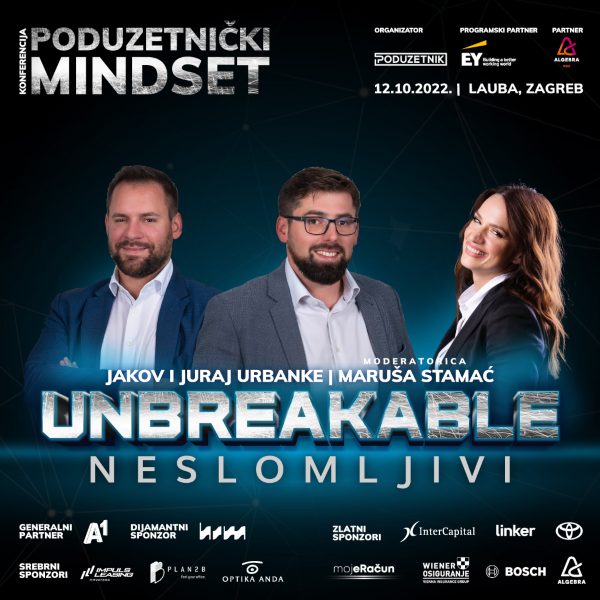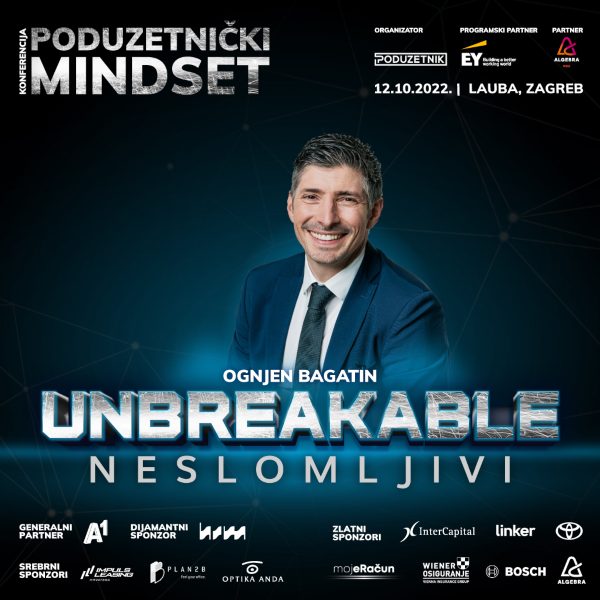Eight Chinese Companies Eyeing Croatian Business Opportunities
April the 20th, 2023 - Eight Chinese companies have their eyes peeled on the lookout for Croatian business opportunities as the country's economic recovery proves more rapid than anticipated.
As Poslovni Dnevnik/Marija Brnic writes, China is on the rise once again and is, as stated above, recovering more rapidly than expected, and at the same time it is again in a proactive campaign to break into all kinds of foreign markets. As such, a new delegation will arrive in the Republic of Croatia for the Chinese Business Forum next week.
New B2B talks between Chinese and Croatian businessmen will be held under the scope of the Croatian Chamber of Commerce (HGK), and this time, representatives of companies from the Shaanxi province, from the north-east of China, the place from which the historic Silk Road ran, are coming in search of partners.
The delegation consists of eight Chinese companies that are interested in cooperation in the field of the metal industry, mechanical engineering, parts for shipbuilding, materials for the furniture industry, solar energy, transport and trade. According to the HGK announcement on the matter, the delegation will be led by Zhai Beiqin, Deputy Director General of the Shaanxi Commerce Bureau.
Certain companies have prepared a list of companies in the Croatian business world in advance with which they want to meet and establish cooperation, for example; the company Ambohr Electric wants to export its ozone and oxygen generators to Croatia, and among others, they are interested in the distribution business of a company that deals with leading a healthy life - El kolibri.
The last such meeting of businessmen took place half a year ago, when a delegation of about fifteen Chinese companies arrived in the City of Zagreb for talks with those in the Croatian business world. The interest of Chinese companies in Croatia has been increasing since back in 2013, more precisely since joining the EU, but the coronavirus pandemic significantly slowed down activities and direct meetings.
However, imports into Croatia from China also grew strongly last year, in contrast to the export of Croatian goods to that large market, while this year started with a large decrease in the value of trade in both directions.
Namely, 85.5 million euros worth of goods were exported last year, which is a result worse by 3.7 percent than back in 2021, while imports grew strongly, by as much as 34 percent, to the sum of 1.369 billion euros. In the first month of 2023, however, exports fell by 36 percent on the annual level, and imports by 23 percent.
AmCham Croatia Presents Results of Business Environment in Croatia Study
March 8, 2023 - The main limiting factors in business in Croatia have been inflation and growing energy costs, and a lack of appropriate workforce, according to AmCham Croatia.
“Despite the good business results in 2022 and optimistic business plans, the caution of companies is observed in anticipation of possible negative effects on business. The main limiting factors in business are inflation and increasing energy costs and lack of appropriate workforce,” said Andrea Doko Jelusic, executive director of AmCham, presenting the results of a study on the business environment in Croatia, which was conducted in the period from December 12, 2022 to January 25, 2023, on a sample of 162 members of domestic and international companies in Croatia, reports Poslovni.
Doko Jelusic added that more than 67% of respondents found 2022 better for business than the previous year, while for 13% of them, business in 2022 was worse than in 2021. If 2020 is omitted, marked mainly by the pandemic, in 2022, an increasing number of companies recorded a slowdown in business. Most respondents (51%) have increased the number of employees, while a third of the companies have maintained the same number of employees, similar to last year's results. On the other hand, a considerable number of respondents (59%) evaluated the experience of doing business in Croatia as good or very good, and 53% of respondents noticed the improvement in business conditions in the last five years.
The most significant improvements in the five-year period were seen in the conditions of financing and increased demand for goods and services, as well as trade exchange opportunities and payment conditions, while the most significant limiting factors, according to the study subjects, were the availability and quality of the workforce, the price of work and the quality of the legal framework.
“The expansion of business is planned by 73% of respondents compared with 82% in last year's study. In planned employment, the percentage is identical to last year - 66%; however, the proportion of those who plan to hire more than 20 employees is reduced, while the proportion of those who plan to reduce the number of employees is growing,” said Doko Jelusic.
“Compared to the previous (2021) year, in 2022, AmCham members recorded similar business results. Mild employment growth and satisfaction are recorded in business conditions over the previous five-year period. On the other hand, the proportion of respondents who record better business results is reduced. Inflation and growing energy costs were not at all in the focus of business owners in 2021, and in this year's study, they took the central place as the main limiting factors. The lack of an appropriate workforce, which was in the first place in the previous year, has now taken third place,” said John Mathias Gasparac, the first Vice President of the AmCham manager.
Research areas include business in 2022, business environment, the impact of institutions on a business environment, comparison with the region, business expectations and attitudes to Schengen, and introduction of the euro and EU funds.
For more, make sure to check out our dedicated Business section.
Croatian Company Protostar Labs Launches Innovative Product
January the 3rd, 2023 - The Croatian company Protostar Labs, a young company from Belisce, recently presented and delivered its high-tech product called the Protostar Vision Box to its client.
As Poslovni Dnevnik/Josipa Ban writes, the aforementioned is a solution that they have been developing for a year now, and which enables visual inspection of products on production lines. Its application, as explained by Filip Novoselnik, the co-founder and director of the Croatian company Protostar Labs, is extremely broad, but they're still primarily focused on industrial production in larger series.
The delivery of the Vision Box is just the beginning of the application of artificial intelligence (AI) and computer vision technology that they've been busy developing, which contributes to the automation of industrial production. It contributes because it enables the quick and early detection of any product defect. In addition, it gives the company that uses it an in depth insight into all sorts of data and statistics via the Protostar cloud platform, which enables the better organisation of the overall production process.
All of these advantages will soon be made available to more companies as the Croatian company Protostar Labs is working on the development of two more versions of the Vision Box. The smaller one, which consists only of a small computer with a camera, will be intended for wider application because it has all the characteristics of a surveillance camera, only this one will be smart. According to Novoselnik, the bigger one will be a more sophisticated version of the existing Vision Box.
Both new versions should be ready and on the market in three to six months, and with their launch, the founder of the Croatian company Protostar Labs expects to increase the company's general level of competitiveness and ensure access to demanding foreign markets.
What is particularly interesting about this young but promising company from Belisce, whose development office is located in Osijek, is that, in addition to solutions intended for the automation of the "terrestrial" industry, they also develop solutions for the one in space, something that hardly any company in Croatia can boast of.
Ultimately, the universe and its puzzles were the reason why the Croatian company Protostar Labs was founded. The idea, as recalled by Novoselnik, was born in the Anonymus Astronomical Society in Valpovo. "Back in 2019, the informal founding assembly of Protostar Labs was held there, and the name of the company was inspired by space and means 'a star in the making'. Our initial idea was to profile ourselves in the long term as a company that develops solutions for the space industry, but at the time it seemed an unlikely feat, so we decided to start with what was more attainable for us, which is the domestic industry, which really lacks high-tech solutions that facilitate, speed up, and ultimately optimise the production process. We started with the development of a system based on a combination of cameras and sensors and AI algorithms, the goal of which is visual inspection of products,'' stated Novoselnik.
Even though it seemed almost impossible just three years ago, the Croatian company Protostar Labs, which is still a small company that started its journey with only two employees, and today already has fifteen of them, is proof that with knowledge, persistence and creativity, anything is possible, even entering the space industry. They managed to do that last year when they passed the competition of the European Space Agency (ESA).
For ESU, as Novoselnik pointed out, they developed a software package that enables the faster and simpler development of solutions, i.e. models of AI and computer vision with the aim of their easier implementation on hardware devices with limited resources.
"Their application, on the one hand, is intended for satellite systems because satellites, which have limited capacity, process huge amounts of data that isn't very easy to send back home to Earth. Our solution should enable data processing to be transferred to a satellite and only data of interest should be sent back to Earth," he explained, adding that a prototype has been developed, but the solution is still in the early stages of development and still needs to be tested. They have already tested it out on drones, and the plan is to do the same on a stratospheric balloon at an altitude of 20 kilometres. ESA will decide whether or not to test it on a satellite, and if that doesn't happen, the system they developed will be used here on Earth.
"Our idea is to develop systems that have a dual application and that high technologies that are designed and made for space can also be applied in industry," Novoselnik pointed out. In addition to all of the above, the Croatian company Protostar Labs is in the running for another project for ESA, in cooperation with the Zagreb-based FER, with which they are developing a module for the characterisation of light pollution on Earth. "We applied for the competition and we're waiting for the results,'' Novoselnik said briefly.
This small but doggedly determinted company from Belisce therefore develops numerous projects, and last year it all began to bring in financial benefits, as their income grew by as much as 730 percent compared to 2020, to an impressive 2.71 million kuna. This is encouraging indeed for such a young company that is still, to a large extent, focused on investing in the technology they're developing, not to mention the fact that they mostly financed this development with their own funds and those from the EU.
Small companies developing here in Croatia unfortunately, according to Novoselnik, are forced to spend too much time trying to deal with formalities and bureaucracy, and this comes to the fore especially with EU projects.
For more, make sure to check out our dedicated business section.
Entrepreneurial Mindset Conference Presenting Unbreakable Cro Entrepreneurs
October 5, 2022 - Unbreakable - that is the subheading of the Entrepreneurial Mindset conference, which will be held on Wednesday, October 12, 2022, in Zagreb's Lauba.
As Poduzetnik writes, at a moment when the world is afraid of the scale of the new crisis, the conference that gathers the most successful Croatian entrepreneurs every year, brings to the stage those behind whom there is an indestructible spirit, a spirit that bravely fights against the obstacles that open up on its entrepreneurial path. They are entrepreneurs who invested enormous energy in achieving their goal and who transferred their passion for what they do to others - members of their families, employees and society.
Among them are certainly Miljenko Borščak and Stiven Toš (Bomark Pak), who received the EY Entrepreneur of the Year 2021 award in Croatia, and Nikola Anđelković (Anđelković AI), who received the award in Serbia two years earlier.

The list of speakers about the strong and unstoppable development in the Croatian ICT sector includes Ph.D. Stjepan Orešković (M+ Group), Nikola Kapraljević (Infinum), Zlatko Hrkać (Sofascore) and Jakov and Juraj Urbanke (HSM).


I can, I want, I know - this is the topic of the conversation that Ana Radišić will lead with Dajana Mrčela (Director of Saponia Management) and Maja Šuput Tatarinov, a singer and presenter, who achieved extremely successful marketing cooperation with Saponia and Kandit.

Lada Tedeschi Fiorio (Atlantic Grupa) will look at female leadership, serial entrepreneur Jako Andabak will reveal his entrepreneurial secrets and challenges in a conversation with Božo Skoko, and Davor Tremac (Fonoa) will explore the topic of how to live locally and work globally.


On behalf of the hosts, Ognjen Bagatin (Media platform Poduzetnik) and Berislav Horvat (EY Croatia) will give opening speeches, and Petar Pavić (Star Digital Group) will close the conference.


"We believe that the participants of the conference will inspire many with their stories! We are talking about people who did not sit idly by even when things were most difficult for them. They knew that no one would serve them anything on a platter. They got up from the floor after multiple falls. We want Croatian entrepreneurs to inspire the rest of our society. They are innovators, visionaries and leaders! We need exactly such people in the times that are knocking on our door." Ognjen Bagatin, owner of the Poduzetnik media platform.
Get your tickets for the conference Entrepreneurial Mindset: UNBREAKABLE here.
The conference is organized by the media platform Poduzetnik in cooperation with Algebra and program partner EY Croatia.
For more, make sure to check out our dedicated Business section.
PM, Reps of Aquaculture and Fisheries Businesses Discuss Developments on Market
ZAGREB, 28 June 2022 - Prime Minister Andrej Plenković and Agriculture Minister Marija Vučković on Tuesday met with representatives of aquaculture and fisheries businesses for talks on developments on the market and difficulties caused by rising costs as well as the government schemes to help this sector.
Plenković spoke about the importance of the aquaculture and fisheries sector and its positive performance despite the challenging circumstances.
In 2021, the value of Croatian exports of fisheries and aquaculture products rose by more than 30%. Over the period from 2016 to 2021, the value of aquaculture production increased by 45%.
The sector's representatives thanked the government for the prompt reaction in addressing the recent crises, according to a government press release.
For more, check out our business section.
Germans Looking at Croatian Business Climate More Optimistically
June the 14th, 2022 - German business owners are beginning to look at the Croatian business climate a bit more optimistically than they have done so far, which is good news for Croatian companies.
As Poslovni Dnevnik/Marija Brnic writes, a mere three percent of German companies operating here in the Republic of Croatia are concerned about their own businesses, which is a better result than in previous years and better than in the rest of Central and Eastern Europe (CEE), where in this year's German-Croatian Chamber of Industry and Commerce research (AHK), nine percent of respondents rate their business opportunities as bad.
In the seventeen years that this survey has been being conducted here in Croatia, this year, as pointed out by AHK President Thomas Sichla, the largest number of companies said they would re-elect Croatia for business, accounting for 84 percent among a total of 105 respondents. This means that German business owners are clearly seeing the Croatian business climate in a far better light than they had done in the past.
When compared to the pre-pandemic year of 2019, that's a thirty percent better result. The current economic situation here in Croatia is also assessed as the best so far, only 26 percent see it as worse, while in 2021, that share stood at a rather unimpressive 50, and in 2019 - at 61 percent.
For the first time ever, soaring energy prices and the lack of skilled labour currently available in the country are cited as the biggest risk to a company's operations in Croatia. Thomas Sichla explained the need and importance of a predictable tax system for doing stable business.
One of the biggest challenges this year will be hiring skilled and qualified employees, and according to the survey, 42 percent of companies expect to increase their numbers, which is more than in previous years.
Half of those companies intend to solve the problem of the shortage of workers through further employee education, and 39 percent by increasing the wages they're willing to pay their employees to above the market average. For next year, AHK is expecting positive effect on Croatia following its entry into the Eurozone, as it will facilitate business operations and reduce currency risks.
For more, make sure to check out our dedicated business section.
U.S. Market Represents Big Opportunity for Croatian Economy, Panel Hears
4 April 2022 - The U.S. market represents a big opportunity for the Croatian economy and the areas in which cooperation can increase include IT, tourism, and energy, it was said on Monday at a panel on trade, business and investment ties between the two countries.
The panel was held as part of the U.S.-Croatia Forum, organised by the U.S. Embassy on the occasion of 30 years of diplomatic relations between the United States and Croatia.
Croatia must find niches, five to ten products in which it can compete globally, and they can be sought in tourism and IT, said Mihael Furjan, CEO of the Pliva pharmaceutical company and president of the Croatian Employers Association.
Given the LNG terminal, there is also energy, he added, noting that Pliva is Croatia's biggest exporter to the U.S. and that HS Produkt is a major gun exporter.
The U.S. and Croatian governments must find areas in which we can cooperate. We must focus more, be creative, he said, adding that Croatia should learn from the U.S. where it is most successful, in innovation and business education.
U.S. business schools are among the best in the world and U.S. companies are the most innovative globally, Furjan said.
Double taxation avoidance and visa-free travel
AmCham executive director Andrea Doko Jelušić said that Croatia, although a small country, had things to offer to the U.S. market. It's necessary to focus on high-added-value industries in which one can be competitive, not selling oneself cheaply but expensively, she added.
Many U.S. companies doing business in Croatia do so via a European centre, the Netherlands or Ireland for example, as a result of which official statistics don't show the real extent of their presence on the Croatian market, she said.
The Croatian and U.S. ministries of finance are still negotiating a double taxation avoidance agreement, whose adoption will make it much easier for small Croatian companies to enter the U.S. market, she said and underlined the importance of visa-free travel as of last October.
Končar exporting much more to US
Končar CEO Gordan Kolak said the company was exporting to the U.S. recently much more than before and that the U.S. was its main market for transformers.
He said increased investment in renewables would create new needs for electricity equipment and solutions for solar and hydroelectric power plants as well as wind parks. Emphasis will also be on digitalisation and grid modernisation as well as on more efficient energy management as consumers also become producers, he added.
Končar will invest much more in software development and smart grid management solutions, Kolak said.
Importance of U.S. investors in Infobip
Infobip is a global IT and communication company providing cloud mobile communication services for business clients. It also cooperates with WhatsApp, Snapchat, Google, and Microsoft.
It is the first Croatian company whose value exceeds $1 billion and in the last 18 months it has made four acquisitions on the U.S. market. Some U.S. investment funds have invested in it.
Infobip CEO Silvio Kutić underlined the importance of US investors. Speaking of enhancing U.S.-Croatia business cooperation, he underlined the importance of education and the need for an investment protection system.
Education for labour market
Coca-Cola HBC Adria general manager Ruža Tomić Fontana, too, underlined the importance of education, saying the education system must adapt to market needs in order to create a workforce with the necessary skills.
It's also necessary to enhance the communication between the public and private sectors on the business environment and to ensure the stability and predictability of doing business, said said, pointing to the problem of a too-high tax burden.
Anita Cvetić Oreščanin, Board member at Poslovna inteligencija, said Croatian companies should learn from U.S. companies and that everyone who had the opportunity should visit to get acquainted with the U.S. market.
DZS: Croatia Has 168,200 Active Business Entities
ZAGREB, 20 Feb 2022 - There were 307,413 business entities registered in Croatia at the end of December 2021, and 54.7% of them, or 168,242, were active, according to data from the national statistical office (DZS).
The majority of the registered entities were trade companies (230,741), of which 133,928 of 58% were active.
There were 73,113 institutions, bodies and organisations, of which 34,844 were active, while the number of cooperatives stood at 3,539, including 800 active ones.
At the end of December 2021, there were also 88,205 crafts and freelancers in Croatia.
Broken down by activity, the majority of business entities were in wholesale and retail trade, and the repair of motor vehicles and motorcycles, accounting for 17.8% of registered and 16.1% of active entities.
Manufacturing accounted for 7.8% of registered and 9% of active entities, while 10.2% of registered and 12.7% of active entities were in professional, scientific and technical activities.16.3% of registered and 13.2% of active entities were in other service activities.
Most active entities privately owned
Most legal entities were privately owned, a total of 132,582 or 78.8%. The state owned 0.8% of the entities, 0.4% had mixed ownership, 0.5% were owned by cooperatives, and 19.5% of the entities had no information about ownership type available.
Most of the active legal entities, 88,220 or 52.4% had between one and nine employees, while 62,278 or 37% of the entities had no employees. Furthermore, 13,683 entities had between 10 and 49 employees, 3,470 between 50 and 249, 319 between 250 and 499, and 272 entities had 500 or more employees.
Limited liability companies accounted for the largest share of business entities, with 166,209 registered and 98,630 active entities. They are followed by simple limited liability companies, with 61,614 registered and 33,791 active ones.
The largest number of registered business entities were based in the City of Zagreb (32.3%).
For more, check out our business section.
Croatian Exports Jump, As Do Prices of Products Sold Abroad
January the 10th, 2022 - Some real pandemic growth can be seen when looking at the data for Croatian exports and their numbers for last year. Not only did Croatian exports jump, but the prices of various products sold abroad by Croatian enterprises also did.
As Novac/Jutarnji/Marina Klepo writes, last year, Croatian exports increased by more than a quarter: in the first eleven months of 2021, according to the CBS, they grew by 26.6 percent (25.4 percent in 2021's first ten months).
However, Croatian exports haven't increased significantly only compared to pandemic-dominated 2020, the Croatian Chamber of Commerce (HGK) pointed out, but their value in those first ten months of last year was 19.6 percent higher than back in the same period in pre-pandemic 2019. In addition, they added, Eurostat's data on the trade done by all EU member states shows that Croatia, both last year and a year earlier, was among the most successful EU countries.
"In the first ten months of last year, only Estonia and Greece had more dynamic export growth," they pointed out from the Croatian Chamber of Commerce. When we talk about the reasons for such good export results, we can mostly refer to the low base in the last, pandemic-dominated year.
Export structures
According to the Croatian National Bank (CNB), the high growth rates of merchandise exports and imports are only a small part of the positive effect of the base period. To a much greater extent, "they reflect the recovery of bith domestic and foreign demand, the partial re-establishment of supply chains, a stronger recovery of the manufacturing industry in relation to the service sector and a marked increase in global prices of energy and other raw materials," reads the latest publication. More detailed data on the structure of Croatian exports also reveal the reasons for their strong growth. When compared to the previous year, HGK analysts explained, the largest increases can be seen in the value of exports of energy - electricity, crude oil and petroleum products - which last year saw a significant increase in terms of prices on the vast global market.
Among the products whose export value increased the most were electrical equipment, followed by metals and finished metal products, whose prices on the global market also rose sharply. Available import price data for the Eurozone shows that crude oil imports rose by about 60 percent year-on-year in the first ten months of 2021, total refining industries rose by about six percent, petroleum products increased by about 40 percent, metals by about 30 percent and electricity by more than an impressive 150 percent.
"Therefore, even in the absence of more detailed data, it's more than noticeable that global prices last year had a significant impact on the growth of the value of Croatian exports," explained the Croatian Chamber of Commerce. Although strong growth is largely based on price increases, the Croatian Chamber of Commerce pointed out that there are a number of activities in which such price increases haven't been recorded, but which also record high export growth rates. These are, for example, the food, chemical and wood processing industries. In addition to that, a number of activities recorded significantly better export results than they did back in 2019, for example, agriculture, forestry and fisheries.
"This is at the same time a consequence of a strong recovery in global demand, but also a greater orientation of companies towards exports," the Croatian Chamber of Commerce said. The only activity that still recorded a significantly lower value of exports than in the same period in 2019 remained the production of motor vehicles and trailers.
Key markets
When it comes to the preferences of Croatian exporters, the figures suggest that last year they maintained their orientation towards the European Union's single market (EU) and what are traditionally the most important export markets. The share of Croatian exports to the EU market increased in the first ten months of 2021 from 68 percent in 2019 to 68.8 percent last year. The highest growth was achieved in the five most represented markets: Slovenia, Hungary, Italy, Bosnia and Herzegovina (non EU/EEA) and Germany.
For more, check out our dedicated business section.
Osijek Economic Centre Worth Over 687 Million Kuna on Horizon
January the 10th, 2022 - The Eastern Croatian city of Osijek is set to get a brand new Osijek Economic Centre worth more than 687 million kuna. This move will certainly work to boost entrepreneurship in this often wrongly overlooked city far from the coast.
As Poslovni Dnevnik/Suzana Lepan Stefancic/VL writes, the project for the preparation of documentation for the up and coming Osijek Economic Centre has been completed in its entirety, thus creating the preconditions for the construction of all buildings within the future complex. The design estimated value of the construction of the Osijek Economic Centre stands at the aforementioned figure of 687.50 million kuna.
''The preparation of project documentation for the Osijek Economic Centre is a complex and large project, and the design of it all as well as the securing of the necessary funds requires a lot of effort. In this project, funds are being jointly invested by Osijek-Baranja County and the City of Osijek. We've presented the documentation, ie the building permit for the entire project,'' said County Prefect Ivan Anusic at the final conference of the project.
The key to Eastern Croatia
He emphasised the fact that the future Osijek Economic Centre is of great value not only for Osijek-Baranja County and the City of Osijek but also for the whole of Eastern Croatia because, along with the Regional Distribution Centre for Fruits and Vegetables, it will become a key project for the development of this county and Osijek as a city. Osijek Mayor Ivan Radic said that the City of Osijek, as a partner in this project, donated land worth 26 million kuna, with another 15 million kuna provided through ITU mechanisms.
''I'm satisfied that everything is going according to the planned dynamics, and I'm convinced that the construction of the Osijek Economic Centre will encourage good economic trends in the city and county,'' said Mayor Radic.
Gabrijela Curkovic, Head of the Administrative Department for Investments and Development Projects of Osijek-Baranja County, pointed out that the recently completed task of dealing with all of the project documentation for the construction of the Osijek Economic Centre was co-financed by the European Union (EU), and that the work was done by the company Sirrah project from Osijek.
The total value of the project stands at 7,447,000 kuna, with 6,329,950 kuna having been co-financed by the EU, 756,525 kuna having been by the Ministry of Regional Development and EU Funds, and Osijek-Baranja County also provided 360,325 kuna.
The project holder is Osijek-Baranja County, and the City of Osijek is a partner.
''The Osijek Economic Centre will consist of several buildings, and the total area of the closed building itself covers 73,000 square metres, while 35,000 square metres will cover an area of open space,'' concluded Curkovic.
For more, check out our dedicated business section.


